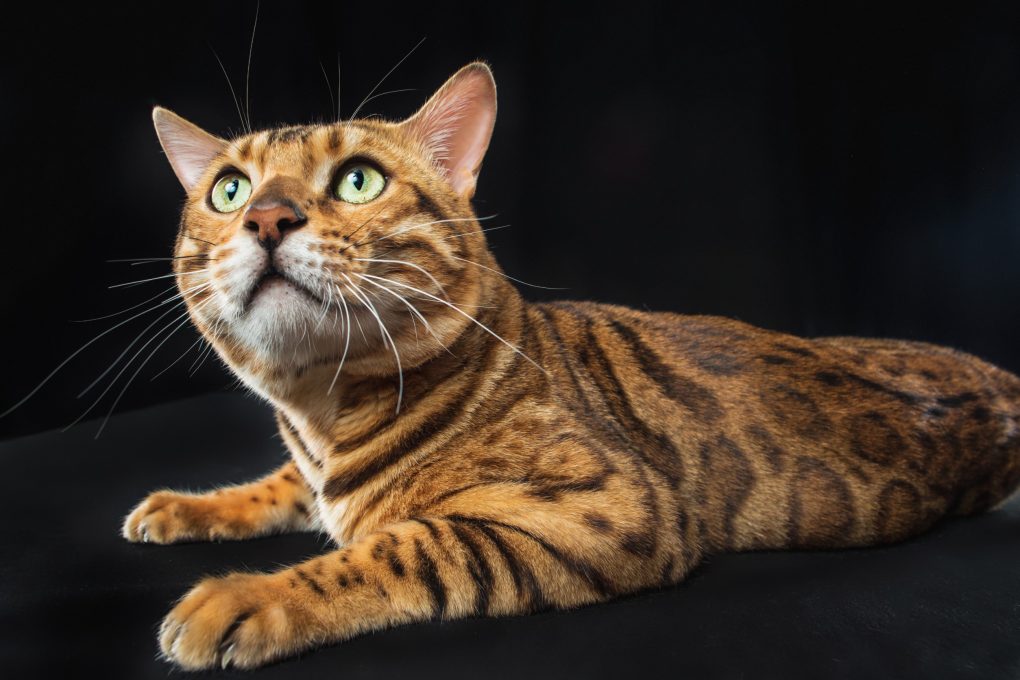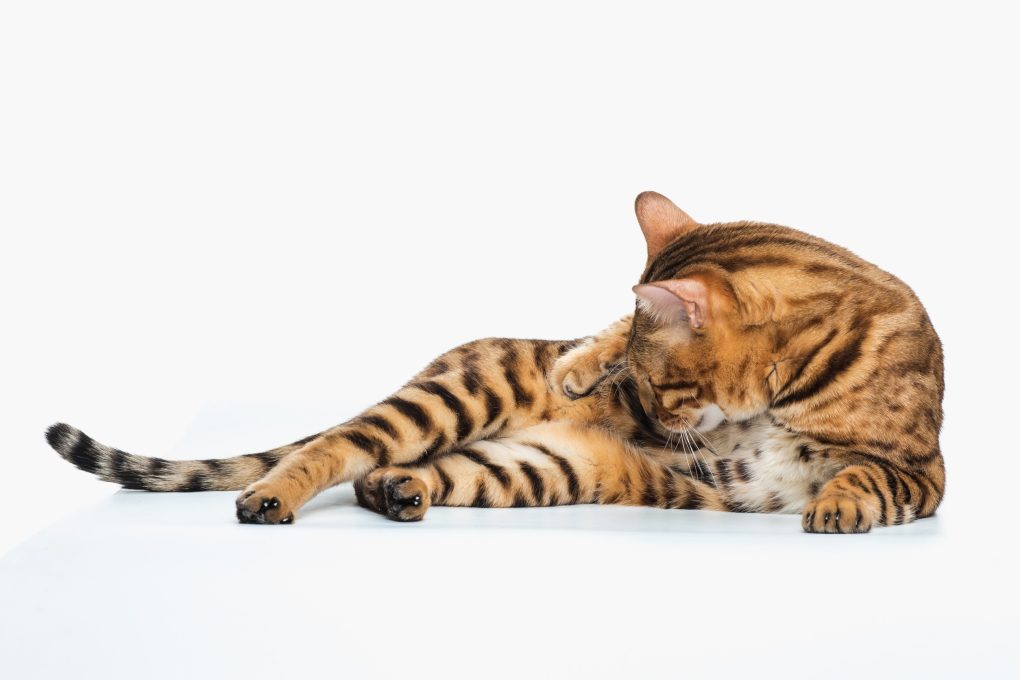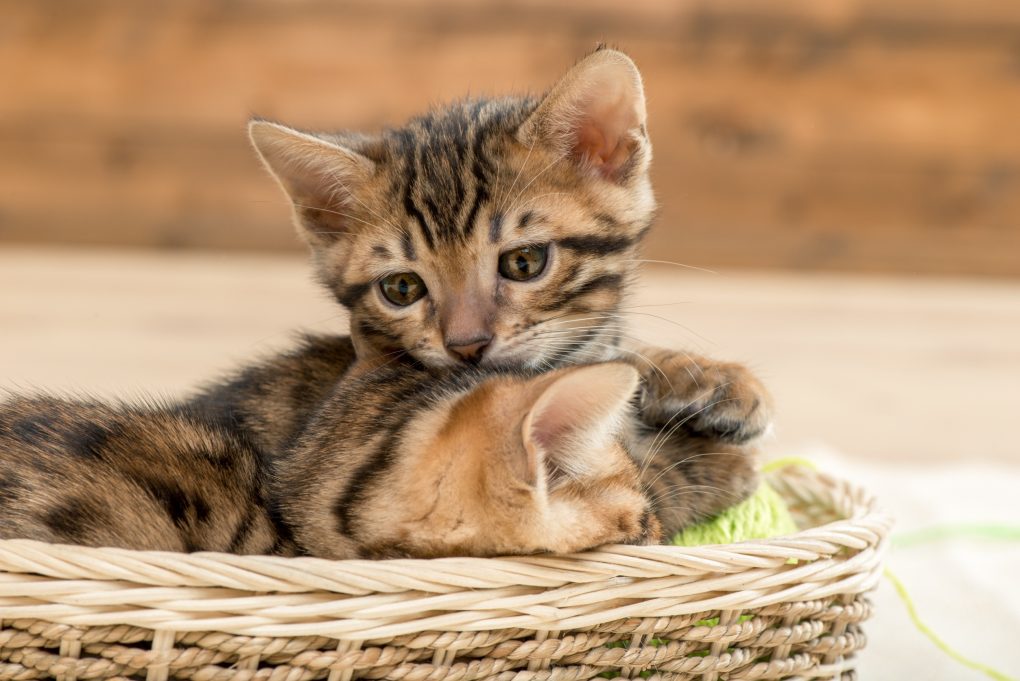Do Bengal Cats Smell: Reasons Your Pet Cat May Smell and How to Address Them
No, Bengal cats do not smell. However, like any other cats, they emit a natural scent. Some people may find the scent pleasant, while others may not. Their odor should not be overwhelming or offensive if a Bengal cat is well-groomed and has no underlying health issues.
Bengal cats may emit an unpleasant odor if they have an underlying health issue, such as a skin infection or dental problems. They may also have a strong odor if they are not groomed regularly. Additionally, if a Bengal cat is not neutered or spayed, it may have a more pungent scent due to its hormonal changes.


It’s also possible that they may have a diet that is not suitable for them, which may cause a bad smell. So it’s always a good idea to consult a veterinarian if your Bengal cat has a solid odor to rule out any underlying health issues.
Table of Contents
Why Bengal Cats May Smell
Halitosis or Bad Breath
Halitosis is when an animal accumulates bacteria in its nose and throat due to an infection or other problem. This bacteria buildup can lead to various unpleasant odors, including that cat urine or feces. The odor-causing bacteria can be transmitted through the cat’s saliva, causing a foul odor and unpleasant breath.
Several factors, including diet, lifestyle, and genetics, often cause halitosis in Bengal cats. In some cases, Bengal cats may experience oral health issues, such as dental disease or mouth infections, that can also cause bad breath. If you notice your cat has bad breath, it could indicate an underlying health issue.
To prevent Bengal cats from having bad breath, limit access to litter boxes, clean them frequently with diluted hydrogen peroxide and brush your cat’s teeth regularly with a toothbrush soaked in gentle detergent or an affordable cat dental chew toy.
Also, consider purchasing cat food and treats made without artificial ingredients and avoid hamster or other small animal diets if possible. If your cat has bad breath, consult your vet for appropriate treatment.
A veterinarian recommends medications and treatments such as nasal cleansers and antibiotics to treat cat halitosis. Sometimes, cat owners may also need to treat their cats’ halitosis through homemade remedies or commercial products.
Digestion Problems
Bengal cats have a relatively high stomach acidity compared to other cats. This can lead to problems with digestion, including bad smells from the cat’s intestines. Diet, stress, infections, and other underlying health issues may cause digestion problems. In addition, some foods usually tolerated by other cats may cause Bengal cats digestive problems, such as vomiting or diarrhea.


In some cases, Bengal cats may develop allergies to certain foods or ingredients in their food. For example, digestion problems can cause Bengal cats to smell wrong from gas or diarrhea. Gastrointestinal issues can cause a cat to produce more gas, producing a robust and unpleasant odor.
Diarrhea can also cause a foul smell and make the cat more susceptible to bacterial infections. For example, a cat’s feces with digestion problems may also have a more pungent smell than average.
Bengal cats also have a unique digestive system that can lead to problems such as indigestion and constipation. This can be due to their unique physiology, and Bengal cats are especially prone to developing problems if they are not given a regular diet that suits their specific needs.
Suppose a Bengal cat has chronic digestion problems. In that case, it’s essential to consult a veterinarian to determine the underlying cause and recommend the appropriate treatment options, including dietary adjustments or medications.
Ear Infections
Ear infections can also cause a foul smell in cats, including Bengal cats. Signs of an ear infection may include excessive scratching or pawing at the ears, head shaking, a strong odor coming from the ears, and discharge from the ears.
Bacterial and yeast infections are common causes of ear infections in cats. Allergies, ear mites, foreign bodies, and underlying medical conditions, such as hypothyroidism, can also lead to ear infections.
If you suspect your Bengal cat has an ear infection, it’s essential to consult with a veterinarian as soon as possible. The veterinarian can diagnose the infection and recommend treatment, including antibiotics or other medication.
It’s also essential to address the underlying cause of the infection to prevent a recurrence. Most cats will recover from ear infections without any lasting effects, but it’s vital to take care of your cat’s ears and ensure they do not become blocked.
Anal Glands
The anal glands of cats are responsible for producing a solid scent to mark territory and attract potential mates. Bengal cats have a significant number of anal glands, which can produce a strong odor.
When cats aren’t adequately groomed or have parasites or other health problems, the anal glands may become blocked, leading to infection and unacceptable cat smell. Symptoms of anal gland problems in cats may include scooting, licking, or biting at the anus and a strong odor from the area. Sometimes, cats may even have a discharge from the anus.
If you notice your cat consistently having poor hygiene or showing signs of discomfort, it may be time to take him to the vet for a thorough checkup. The health of your cat may depend on it. The veterinarian can diagnose the problem and recommend treatment, which may include prescribing antibiotics or even surgery in some cases.
How to Reduce the Odor of a Bengal Cat


There are several ways to get rid of foul odor in Bengal cats:
- Regular grooming: Regular grooming, including brushing and bathing, can help remove dirt and oils from the coat of Bengals, reducing odors.
- Dental care: Regular dental checkups and teeth cleaning can help prevent dental problems, such as halitosis, which can cause a foul odor.
- Ear care: Regular ear cleaning and checking for any signs of redness, swelling, or discharge can help prevent ear infections and bad smells.
- Diet: A balanced diet with appropriate moisture and protein levels can help reduce foul odor caused by digestion problems.
- Anal glands care: A diet high in fiber, moderate in protein, and low in fat can help regulate the function of the anal glands and prevent or reduce the risk of blockages.
- Consult a veterinarian: If your Bengal cat has a persistent foul odor that cannot be explained by grooming or diet, it’s essential to consult with a veterinarian. The veterinarian can diagnose and recommend treatment for any underlying health issues causing the odor.
